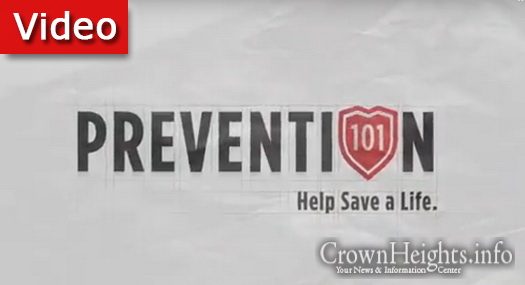
Prevention101: What Causes Bullying? How Can I Prevent My Child From Being a Bully?
A concerned mother from Crown Heights asks about what she can to stop her child from becoming a bully. Operation Survival turns to Dr Novick to respond.
It is difficult to determine what causes bullying but there are usually specific indicators which we can learn to recognize. In order to do so, we must first understand the temperament of children and how they develop. All children have inborn, pre-wired temperaments which are evident from infancy. Some babies are more assertive about letting others know what they need, while other babies are more passive and will wait until someone takes care of them. Children who are aggressive and like to be in charge are at risk for becoming bullies while shy and passive children are much less likely to become a bully.
A lot of bullying, especially among girls, has to do with language. A child who has very strong language skills knows how to use a turn of phrase to make people laugh or to make people cry. These children are at greater risk of being bullies than a child who struggles with language.
Since no one is actually born a bully, what can parents, educators and communities do to prevent it? We must recognize that children may be born with bullying tendencies, but as with everything we do with our children, we shape them. We do that by modeling appropriate behavior. If our children see us abuse our power and deliberately torment the dry cleaner, the butcher, the principal, our neighbors, or people in our own families, then they learn to do so as well. By demonstrating these behaviors, we teach our children that bullying is a reasonable way to accomplish our goals.
We also model based on how we respond when we see bullying. We may not do it, but when we see an older sibling mistreating a younger sibling, do we turn a blind eye? Every time a parent or an educator reacts with neutrality to children’s behavior, children read that neutrality as approval. If children bully in front of us, either to their siblings or their peers, and we do nothing, then they have every reason to believe this is acceptable behavior. They will continue to do it.
When we hear from the school or parents of our children’s friends that our child is bullying, what can we do? We need to talk with them. We need to give them alternate ways to accomplish their goals socially. We need to teach our children the rules of social discourse. We need to explain how to be a mentch and how to become a good person with a kind heart. Children must understand that good people with kind hearts would never deliberately abuse their power to hurt another person. Every parent will need to have this conversation with their children at some point. Even the best of children may inadvertently bully others. Parents need to talk with their children and explain how to avoid that behavior. Prevention is worth twenty tons of cure.
Before children become Bar Mitzvah age or Bat Mitzvah age and before a Shabbaton or trip, parents should sit down with their children and talk about how to respond to invitations from people. As a family, the following questions should be discussed. Do we only go to parties of the people we like or is our job to rejoice with the celebrant of every occasion? On a school trip, do we ask to room only with our friends or will we be open and welcoming to others? Discussing these questions and making the decisions as a family will help children learn appropriate behavior and how to deal with social situations in a polite way.
Having frequent and age-appropriate conversations about how to interact with peers and handle various social situations will help a child develop into a well-balanced individual who does not need to resort to bullying.
(The article is based off an interview with Dr. Rona Novick for Operation Survival’s Prevention101 series. Dr Novick is the Dean of the Azrieli Graduate School of Jewish Education and Administration at Yeshiva University and holds the Raine and Stanley Silverstein Chair in Professional Ethics and Values)













